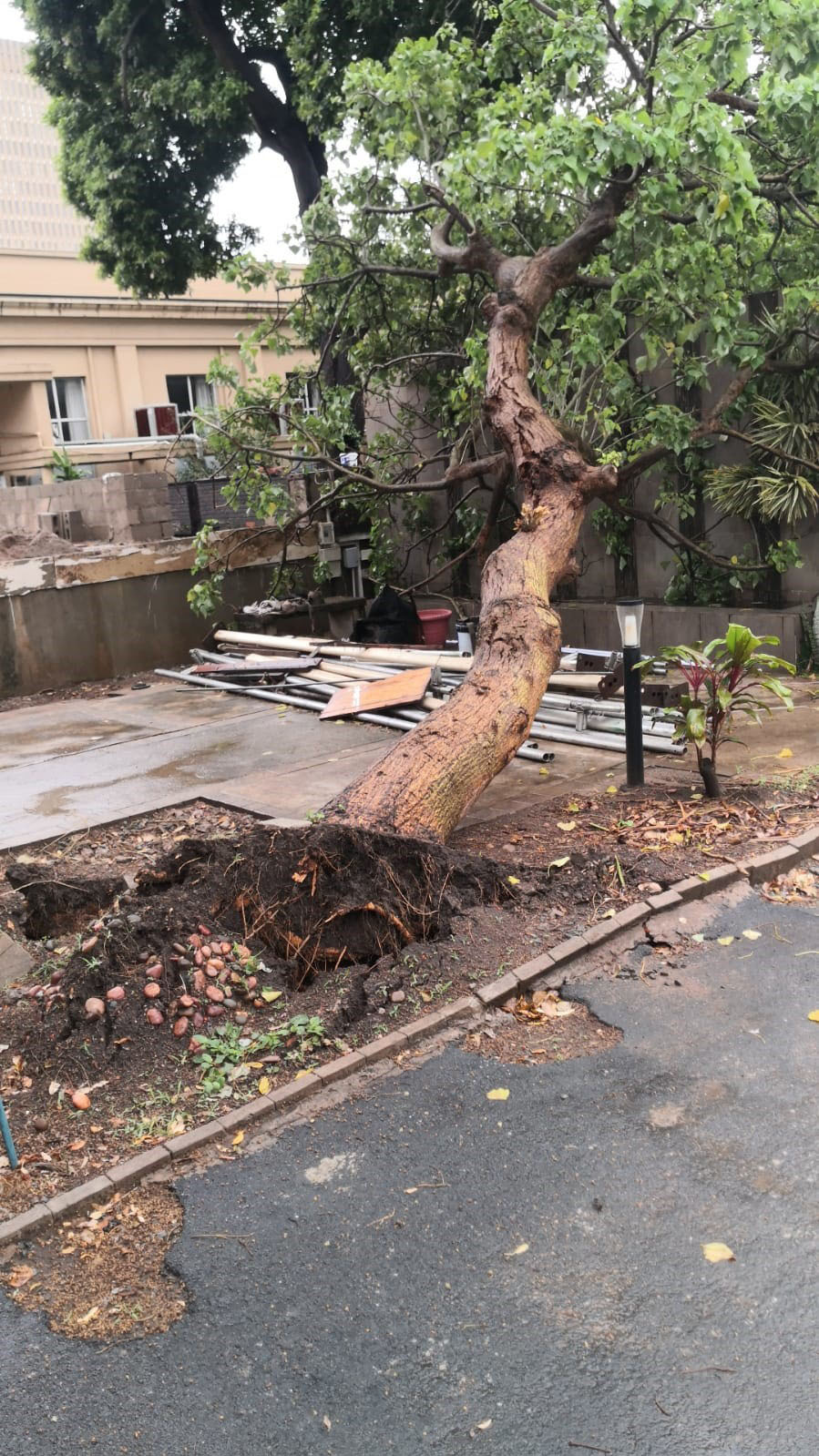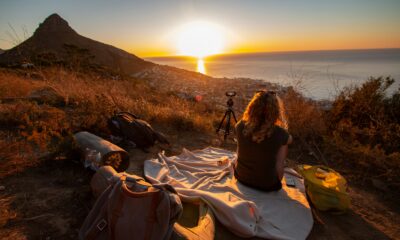
Banner

KZN community calls for ‘lifeboat’ amidst extreme flooding
The Durban Jewish community is caught up in a Biblical scenario not unlike the plagues in the Pesach story, as flooding plagues their province.
Not only that, but the chemical spill that has affected the health of residents since the July 2021 unrest continues to be a threat in the wake of the floods.
Knowing that this natural disaster will have an impact on the area for a long time to come, the community is calling for support so that it can help its members and those around it who are affected the most.
“Part of our house flooded last night [Monday, 11 April],” says mother of four and South African Jewish Board of Deputies (SAJBD) political and social liaison Alana Baranov. “We were up mopping our garage and playroom area until 01:00, and our patio and veranda area was covered in water. Schools were closed, including Akiva College, the Jewish school in Umhlanga which my kids attend.
“We had to take a different route to the airport this morning [Tuesday, 12 April] as the N2 was closed, there were mudslides, and parts of the road submerged on the M4,” she says. She and her family were going to Johannesburg for Pesach. “What we experienced was nothing compared to the devastation and loss of property in the informal settlements and more rural areas,” she says.
One of her biggest fears is the continuing effects of the UPL Cornubia catastrophe – a chemical warehouse that was set alight during the July 2021 unrest and consequently spread chemicals into the surrounding environment. “It’s less than a kilometre from our home and my daughter’s school, and is very concerning. We were all so sick from the chemical fire during the July unrest, and now the chemicals are being spread again,” she says, referring to reports that a dam containing the pollution has now burst because of the flooding.
“The ecological, environmental, and human cost of the UPL disaster should be national news,” says Baranov. “It’s been an ongoing [disaster] since July 2021. Symptoms from the toxic fumes included tight chests and irritating coughs, sore throats, red irritated eyes, and body rashes. Residents in our area also noticed that their pets were sick, and our little family dog wheezed for a few days.”
SAJBD KwaZulu-Natal Council President Susan Abro says, “KZN has been really badly affected. The north, south, and inland have suffered incredible damage. People’s homes have been washed away – I’m talking apartments, informal homes, everywhere. Thank G-d our community affiliates aren’t badly affected. [Jewish Aged Home] Beth Shalom is fine, as is Jewel House [a home for Jewish adults with special needs].
“Beth Shalom was largely unaffected in terms of damage. The main challenge is being short staffed,” says the home’s president, Solly Berchowitz. “Those at the home have stepped up to ensure residents receive the necessary care. Thank G-d, I’ve been unaffected. Durbanites are resilient and mobilise quickly to help those in need. We have certainly been tested over the past few years, but in the true Durban spirit, we will rebuild again.”
“Everybody in the Jewish community is affected in some way or another,” Abro says. “In my own building, there’s no water and the electricity is intermittent. The municipal water pipes have been affected, and they are unable to locate the breaks or leaks because the roads are closed and inaccessible.
“The greater community has suffered,” she says. “There hasn’t just been 300mm of rain but also winds that were so strong that the rain was horizontal. Roads have collapsed, informal settlements have collapsed, there’s going to be a death toll. It’s going to take some time to actually see the full extent of this disaster.”
Ian Scher of Rescue South Africa says he has sent a small team to assist. They drove for 12 hours from Port Elizabeth with inflatable boats and other equipment. “They are swift water rescue practitioners and will go wherever there’s a need,” he says. “They will meet the SAPS [police] team at Port Shepstone and be deployed by them.”
According to local media, an estimated 250 people had died in the floods by the afternoon of Wednesday, 13 April. Some families have lost more than one family member. President Cyril Ramaphosa was due to visit the province on Wednesday as the scale of the devastation became apparent.
The presidency said Ramaphosa’s visit would “offer support to affected communities and assess the response of government and civil society to this critical situation. This is a tragic toll of the force of nature, and this situation calls for an effective response by government in partnership with communities. This situation calls on us to come together as a nation and offer assistance to those who desperately need our care and support.”
Says Abro, “As far as the Jewish community is concerned, people have had walls collapsing on their cars, and some people have had to dig through mud in their homes. I can assure you that our loss is nothing compared to that of the wider population. All I can say about the community and its institutions is thank G-d the vulnerable people are fine and will be taken care of. We’re going to need to look to everyone to help the poor and needy in the wake of this disaster.”
This is why the KZN Council has launched an urgent appeal. “As we come together in our homes to celebrate Pesach, please spare a thought for those in our community and the greater KZN community who have been severely affected by the devastating floods,” Abro says.
“People cannot travel to work, and some are unable to leave their homes. Some have even lost their homes and possessions. The KZN Council is obliged, once again, to prevail upon the generosity of the KZN Jewish community to help those whose need is greater than many of ours.”
They have called for the donation of bottled water, non-perishable food, blankets, towels, diapers, brooms, mops, shovels, work gloves, rubber boots, buckets, toiletries, and batteries.
“If you wish to contribute funds instead of items, the KZN Council will ensure those funds are responsibly dispersed to the appropriate members of the greater community,” says Abro. “Contributions can be made to: UCF, Standard Bank, Acc No: 050779036, Branch Code: 040127, Ref: Flood/Name + Surname, email: accounts@djc.co.za. A section 18a certificate will be provided in return.”










